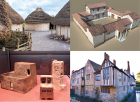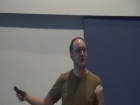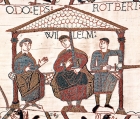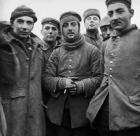General
When considering planning for any topic perhaps the first question should be to question your rationale for teaching this topic and how it relates to wider issues such as diversity, learning outside the classrooms, and whether to teach history discreetly or as a part of meaningfully linked cross curricular approach. In this section, you will find articles, guides, resources that will support you to develop your planning and helping children to make progress.
-

‘Golden threads’ in primary history
ArticleClick to view -

How diverse is your history curriculum?
ArticleClick to view -

Film: Making an effective History curriculum
ArticleClick to view -

Primary history and British values
ArticleClick to view -

What your local Archive Service can offer to schools
ArticleClick to view -

The importance of history vocabulary
ArticleClick to view -

Ideas for Assemblies: Lest we forget
ArticleClick to view -

Britain from the Iron Age to Robin Hood
ArticleClick to view -

Curriculum Planning: which non-European society might we offer at school?
ArticleClick to view -

Including the Muslim Contribution in the National Curriculum for History
ArticleClick to view -

A History of the World: 100 objects that tell a story
ArticleClick to view -

Helping pupils to view historical film critically
ArticleClick to view -

Bring on the iPad revolution
ArticleClick to view -

The digital revolution
ArticleClick to view -

Case Study: Historical information and the local community
ArticleClick to view -

English Heritage's Heritage Explorer
ArticleClick to view -

Is teaching about the Holocaust suitable for primary aged children?
ArticleClick to view -

Archives in Primary History
ArticleClick to view -

Primary History at Key Stage 2
ArticleClick to view -

Processes, Chronological Understanding & Planning
ArticleClick to view

